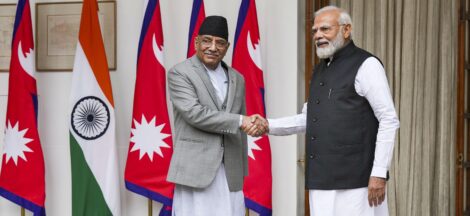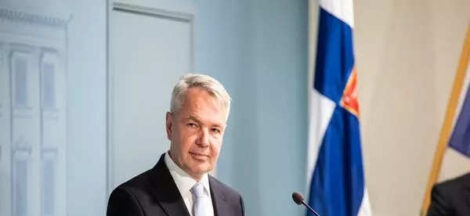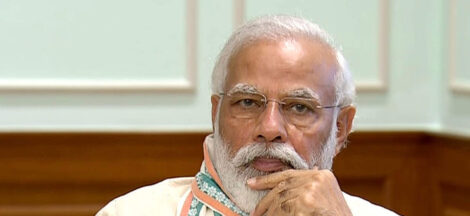By Kalyani Shankar
The 133-year-old Congress party in its heydays would have shuddered to think of a day that it would have to resort to crowd funding to augment its finances. The cash-rich party, which had been in power for 49 of the 70 years since Independence, is facing an unprecedented funds crunch due to various reasons. It has reached a bottom now with the party launching a 40-day booth committee fund raising programme from October 2. The Congress leadership has appealed for funds tweeting: “The Congress needs your support and help. Help us restore the democracy which India has proudly embraced since 70 years by making a small contribution.” Former Union minister Shashi Tharoor even tweeted then that there should be no embarrassment in accepting the facts.
With elections to the three BJP ruled states — Rajasthan, Madhya Pradesh and Chhattisgarh —and the next year’s Lok Sabha polls, there is urgent need for the party to mobilise resources. Facing a string of defeats in state after state since 2014, the Congress coffers are almost empty. The corporate funding also has dried up perhaps because Congress is not perceived to be poised for a return. Gone are the strong state leaders who would collect funds in the states.
The Congress has been tightening its belt for some time. According to the party constitution, the members are supposed to donate ten per cent of their earnings and the party has now asked them to step up their donations. The other easy route is to cut down expenses. With the party ruling barely in four to five states, the Congress has even stopped sending money to the state units for day-to-day expenses. Budget has also been cut by almost half for meetings and also on celebrations.
In olden days, many political parties used to collect smaller donations (chanda). Over the years, this system has disappeared with parties resorting to making money through deals if it is in power or through corporate donations. They meet the poll expenses from donations, party membership fee, and interest earned on fixed deposits, and other savings. However, with campaign expenses touching astronomical figures and huge election rallies, chartered flights, media advertisements and other expenses, the opposition parties are unable to meet the cost. For instance, the following figures might give a clue. During the 2014 Lok Sabha elections, national parties spent Rs 858.97 crores on publicity, Rs 311.8 crores on travels, Rs 104.28 crores on other expenses and Rs 311.47 crores on expenditure towards candidates — according to the Association for Democratic reforms, a poll watchdog. It is shocking that almost 69 per cent of the income for these parties came from unknown sources.
Related to that is the inequality in election expenditure.
The ADR notes that the total funds collected by all national parties in 2014 Lok Sabha polls was Rs 1158 crores, up from Rs 854.89 in 2009 polls. The BJP collected Rs 5.88 billion while Congress received Rs 3.50 billion followed by NCP with Rs 77.85 crores and BSP with Rs 77.26 crores. The income of the BJP increased by 81.18 per cent to Rs 1,034.27 crore while that of the Congress decreased by 14 per cent to Rs 225.36 crore between 2015-16 and 2016-17.The Congress is still the second richest party but far behind the BJP. The Government had announced in 2017 an electoral bond scheme, but this is not enough and much more need to be done.
The Election Commission has a long list of suggestions including de-criminalisation of politics, reforms of political parties, auditing of accounts of parties, checking black money in polls, making “paid news” an electoral offence, and punishment for false affidavit by candidates and capping of anonymous donations to 20 per cent.
Several panels have recommended poll reforms — including Goswami Committee (1990), Vohra Committee (1993), Indrajit Gupta Committee on State Funding of Elections (1998), Law Commission Report on Reform of the Electoral Laws (1999), EC’s Proposed Electoral Reforms (2004), and Second Administrative Reforms Commission (2008). One suggestion was state funding but there is no consensus on this.
It is time to push through these long pending big-bang electoral reforms to cleanse politics. Prime Minister Narendra Modi has been talking of ‘one nation, one poll.’ This could be the beginning but other issues like criminalisation of politics, use of money and muscle power, transparency in election funding, auditing of accounts of political parties, and their regulation also need to be tackled. Even the Supreme Court in a recent judgment has left it to Parliament to check criminalisation of politics. The Apex Court has also ruled last year seeking votes in the name of religion, race, caste community, or language of a candidate would amount to corrupt practice. No doubt these cannot be done in a day but it has to start some time or the other but the sooner the better. What is needed is political will and consensus for reforms. (IPA Service)
The post Funding Crunch Bites Congress, Opposition Parties Hard appeared first on Newspack by India Press Agency.


